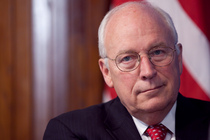 The latest revelations about the CIA’s prospective covert assassination program is yet another nail in the coffin of US intelligence and its willingness to take risks.
The latest revelations about the CIA’s prospective covert assassination program is yet another nail in the coffin of US intelligence and its willingness to take risks.
Immediately after the World Trade Center attacks in 2001, Vice President Dick Cheney called a meeting of intelligence chiefs to ask them what new powers they would like to fight terrorism. A whole laundry list was presented, including increased eavesdropping on Americans, the seizing of terrorists overseas and a torture program that evolved to include a number of foreign countries.
Since those early days in the war on terrorism, the intelligence community has been rocked by a series of revelations that began with the failure of find weapons of mass destruction in Iraq and continued with the details of the rendition and torture program and the illegal interception of millions of communications by Americans.
And now the CIA stands accused of thinking about assassinating terrorists and not telling Congress about their plans. While the CIA has been killing terrorists using Predator drones for years, these other discussions involved possible killings on the streets of foreign capitals using more personal weapons. And, once again, Dick Cheney was at the heart of the matter and told the CIA not to notify Congress.
In fact, Cheney has an unusual role in all of this. It was he who unleashed the intelligence dogs of war post-9.11. But it was he who put a chill on the spooks by aggressively demanding that their intelligence showed links (which, in reality, were non-existent) between Saddam Hussein and Al Qaeda. And it was Cheney who used his own political apparatus to polarise both Congress and the leaders of the intelligence community to fuel the leaks that have caused so much damage.
The result of all this has been a steady reduction in the number of risky covert operations. Today, it is very difficult to find any part of the intelligence community willing to authorise projects that might have been routine in the Cold War. With the possible exception of the Pentagon, no agency is prepared to do anything that might result in headlines or a congressional investigation.
This risk aversion is only going to get worse. Eric Holder, the Attorney General, is thinking of appointing a special prosecutor to investigate the intelligence community’s involvement in torture. A grand jury is looking into the destruction of videotapes that showed Al Qaeda suspects being tortured and a criminal prosecution of a senior CIA official is possible. And Congress is certain to demand blood over what it sees as routine lying by the CIA over the past ten years about the extent of secret covert activities.
The message for the intelligence community is very clear: you don’t actually need to do anything that might be considered illegal; even thinking about doing something is enough to kill your career.






Comments